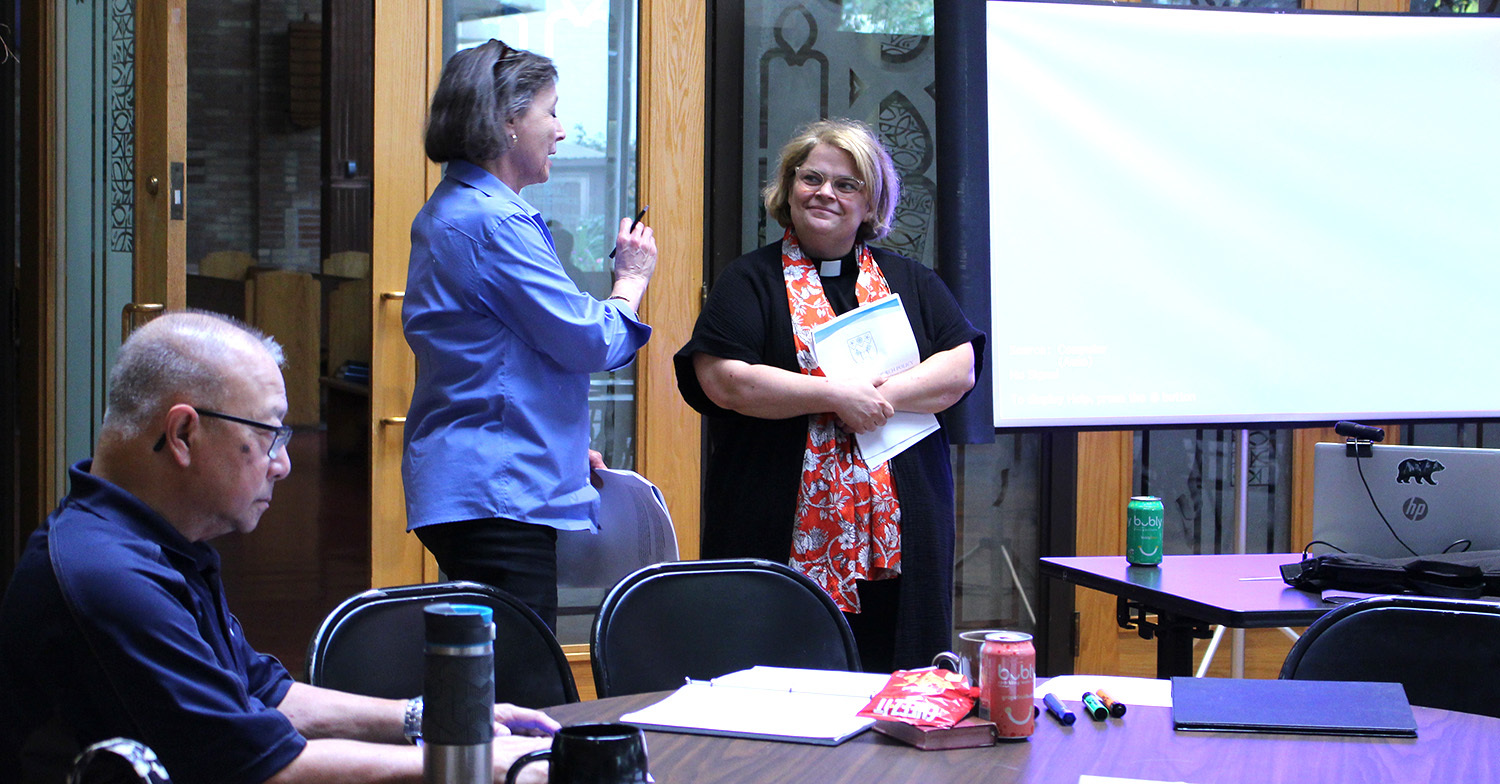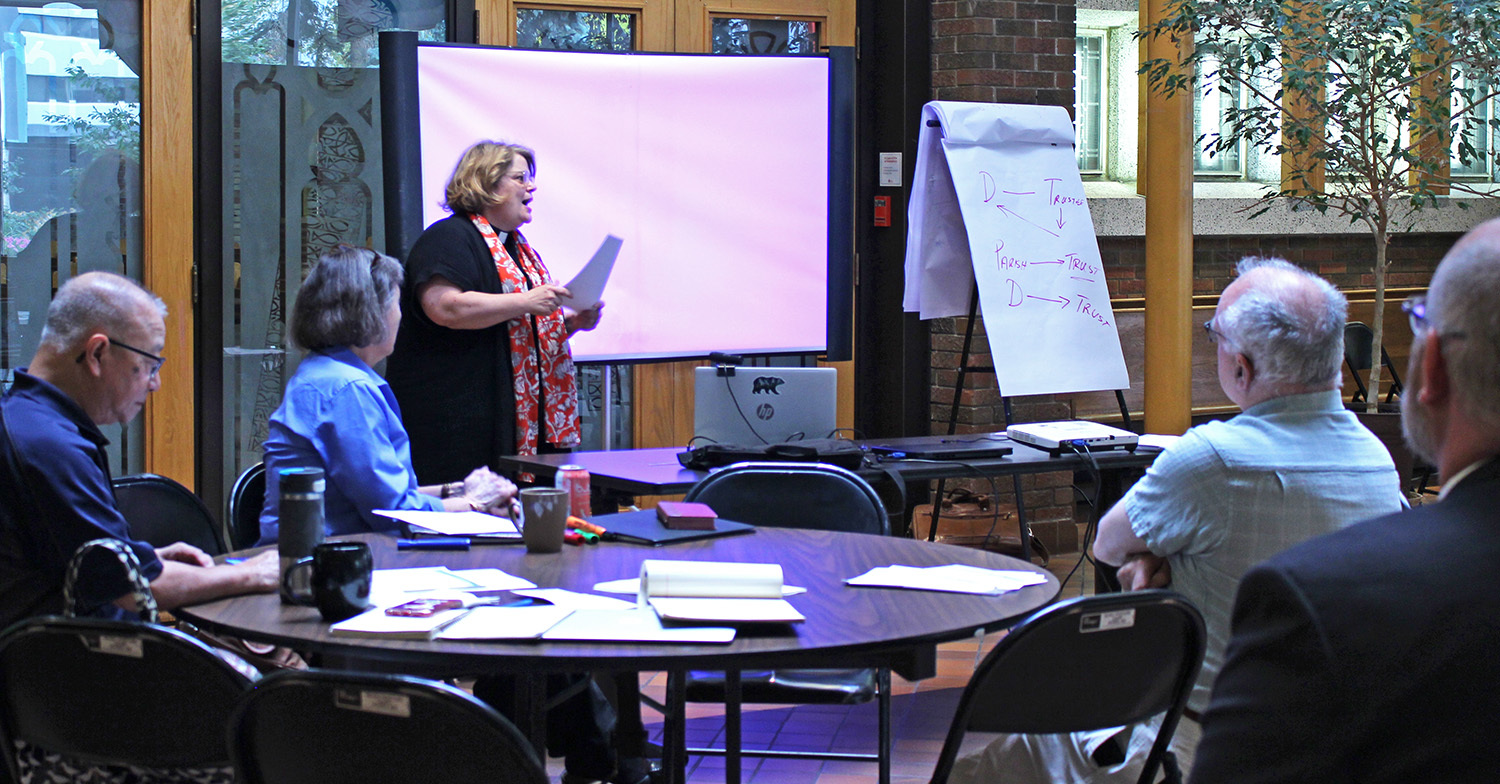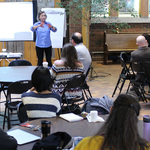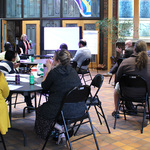The topic for the Clergy Day held on September 29, 2022, was both timely and crucial. It was an opportunity for clergy and lay employees who work with vulnerable people to learn how to enact updates to the diocesan Safe Church Policy. Work on these updates has been underway for several months, following up on a pastoral message from Bishop Stephen London, sent in April:
The church must be a safe place for all people if we are going to be true to the Gospel of Jesus Christ. It is heartbreaking when revelations arise about church leaders abusing the trust given to them. We are in a time of repentance and humility, and we are grateful for those who call the church to repent. It is also a time for renewed commitment to being the church Jesus calls us to be.
Diocesan Chancellor Lois MacLean set the stage for the day’s discussion by providing a legal framework for all that needs to be considered in a Safe Church Policy. She touched on relevant aspects of criminal and civil law, contract law and issues to do with insurance. She spoke of vicarious liability and duty of care: all aspects of life in the 21st century that were likely not included in the training of priests and deacons, church workers and volunteers, but which are vitally important. We know that many vulnerable people, both children and adults, have fallen victim to abuse in churches; places where they should be safe.
“Ministry involves risk,” said MacLean who leads the Diocesan Advisory and response Team (DART). “But we’re not going to stop ministering, so what can we do to reduce the risks?”
That is where the updated Safe Church Policy comes in. It calls on rectors throughout the diocese to make sure that all parish volunteers go through the appropriate level of screening and receive the training they need to keep our churches safe. The approach protects both the vulnerable in our midst and the volunteers themselves.
Leading the work to update the diocesan policy on behalf of the Bishop is the Ven. Sue Oliver, Archdeacon for Children, Youth and Family Ministry. In her introduction to the Safe Church Policy, she writes:
The Diocese of Edmonton has many gifted clergy, employees and volunteers who offer their gifts and talents. It is essential that we ensure that those we place in positions of power and trust be selected, trained and supported so that their ministries may be lifegiving.
This policy complements and strengthens the commitment of this diocese to strive to ensure that all places of work and all of our congregations are free from sexual misconduct. It will be applied, without exception, across our diocese: in parishes, diocesan ministries and programs as well as in our buildings.
The fact that the policy must be carried out “without exception” may be difficult for some to accept. Many parishioners have served for decades without a specific job description and without being screened. They are known and trusted. However, Oliver’s document points out that no one should take personally the need for screening. “It is the nature of the position not the nature of the person holding the position which determines the standard (for screening).” The policy provides a clear list of positions within a parish that are deemed high risk, medium risk, and low risk, with different levels of screening required for each. High risk positions include all clergy and employees, and volunteer positions which involve “ongoing, intensive or lone interactions with vulnerable persons.” (See the list below.)
Bishop Stephen London reminded those gathered at Clergy Day that standards must be kept high, because those who seek to take advantage of the vulnerable in any community always seek the place where the standards are lowest. Nothing less than the protection and safety of parishioners, employees, and clergy is at stake. For this reason, failure of church leaders to implement the policy will result in disciplinary action.
Implementing the updated Safe Church Policy will require an additional investment of time by parish leadership. In order to help with this, each parish is required to appoint a Safe Church Coordinator to ensure all volunteers and staff in their parish are trained and screened as needed. The coordinators will be equipped and supported by the Rev. Armand Mercier, Associate Priest at Christ Church in Edmonton, who is taking on the role of Diocesan Safe Church Coordinator.
While the Safe Church Policy does present an administrative challenge, several at the meeting expressed their support and gratitude. “This is awesome,” said the Rev. Nick Trussell. “This is the best thing, because this will save lives.”
Further development of the diocesan Safe Church Policy will be rolled out over time. The immediate goal is to identify people in each parish to serve as coordinators, and to provide Mercier with those names as well as the names of volunteers who serve in positions that are deemed to be high risk. The intention is to collect this information by Advent, which begins on November 27, 2022. The Safe Church Policy document can be found on the diocesan website.
List of Ministries
Please note that many parishes have roles that may vary in title, role, or responsibility; this is merely a guide. Should you have any questions about the risk level of a position, please reach out to the Safe Church Coordinator for clarity.
High Risk: Ongoing, intensive or lone interactions with vulnerable persons
- Clergy
- Youth leader
- Director of children’s or youth choirs
- Trainer and supervisor of young servers
- Sunday school teacher
- Assisting people with disabilities
- Lay reader
- Home visitor
- Nursery coordinator/attendant
- Seniors’ home visitor
Medium Risk: Leaders in ministries with adults involving meetings
- Adult choir or music group
- Study group leader
- Baptismal preparation leader
- Support groups leader
- Envelope secretary
- Treasurer or those with access to money and confidential records
Low Risk: Sunday morning ministries with adults and other adult meetings
- Greeters/sides-people
- Vestry member
- Adult Sunday School
- Arrangers of coffee fellowship
- Audio-visual controller
- Bulletin folder
- Readers
- Janitor /cleaner
- Deanery Representative
- Musician
- Wedding/external event coordinator

















